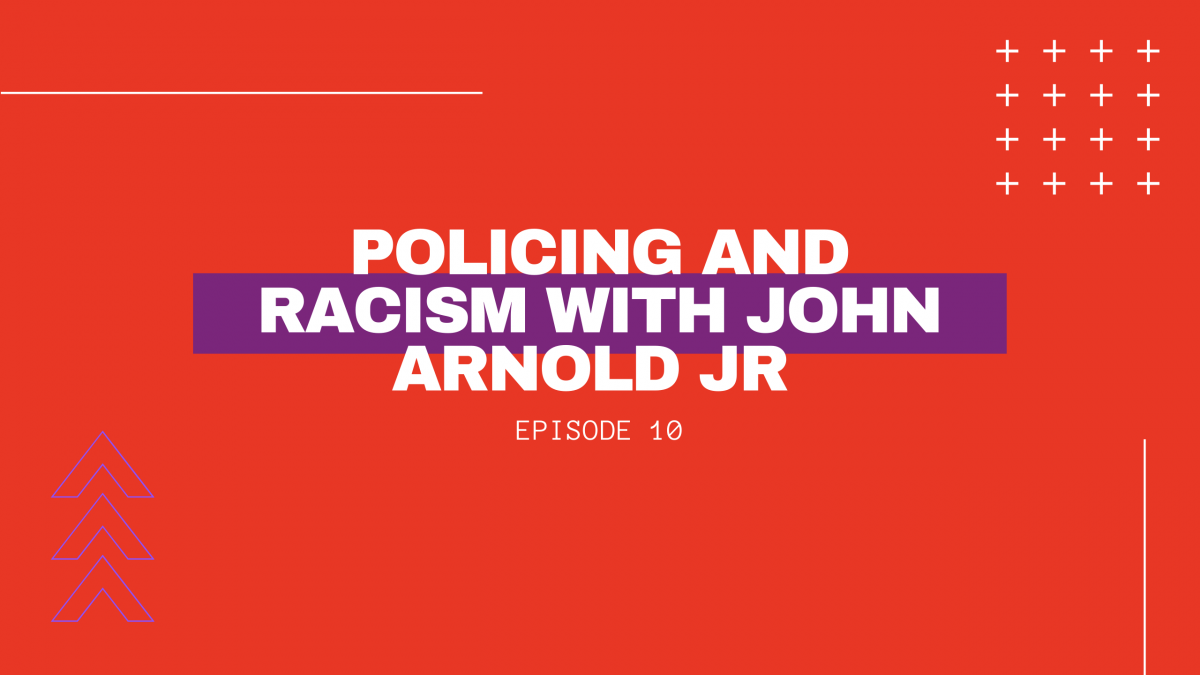Policing and Racism with John Arnold Jr.
John Arnold Jr. is today’s guest and our topic is important and timely. He is a former Deputy Director of the Newark (New Jersey) Police Department, and a former Captain of Detectives of the Essex County Prosecutor’s Office.
“We have a problem where our badge is being tarnished.”
Police reform under the leadership of Eric Holder during the Obama Administration was starting to turn things around. Because former Attorney General Jeff Sessions was not a fan of police reform, the current administration shelved the initiative. Now some police officers have become emboldened.
Key factors are:
- Poor training
- Lack of disciplinary action
- Lack of relationship building within the communities served
Before you can train someone to become a police officer, you must first hire them. All candidates must complete:
- A criminal background check;
- A review by a panel of detectives; and
- A psychological evaluation.
Systemic racism and nepotism prevent those with a vested interest in the community from serving in law enforcement.
Leadership can easily get their friends and family onto the force. A great example of this was discovered in Newark, New Jersey when a psychologist in charge of evaluations was being told who to pass and who to fail. When this person was replaced, and the candidates who appealed were retested, they all passed.
The community at large can influence and promote change within their area police departments. Indeed, residents have a right to demand that there be a relationship between the police force and the community at large.
Persistency and power in the community will change the status quo. There is strength in numbers, but you must organize, mobilize, and execute your plan of action.
There are many benefits to relationship building. When there was a police officer involved shooting in Newark, because of the relationship and footage from a body camera, it was apparent that the shooting was justified, and there was no outcry from the community.
A major element of Newark’s police reform came from a Consent Decree signed March 30, 2016 by the U.S. Department of Justice and the City of Newark. “A consent decree is an agreement or settlement that resolves a dispute between two parties without admission of guilt (in a criminal case) or liability (in a civil case).”[1],
As a result of this decree, community identified issues have been resolved that may never have been brought to the attention of the Police Chief.
There is hope.
Director Arnold emphatically states that the community can force change by strategically mobilizing, executing a plan, and then going to the powers that be.
- Stay on it.
- Do not make a little bit of noise and then stop.
- Be willing to be tireless about the issues.
- Hold the right people accountable.
We must maintain our hope. We have to learn that effective does not mean brutality and corruption. Be part of the process; effective leaders will respond.
Related Posts
- Redefining Power Dynamics in Negotiation Beyond Gender ( July 5, 2024 )
- Aligning Values and Roles in the Workplace ( June 11, 2024 )
- Why Unions are Still Needed in Today’s Workplace ( April 22, 2024 )
- Navigating Generational Dynamics in the Workplace ( April 16, 2024 )
- Building a Better Workplace through Unions with Richard Hooker, Jr. ( April 1, 2024 )
- Applying Collaborative Law Principles to Employment Challenges ( March 25, 2024 )
- Navigating Labor Management Relations and Career Strategies ( March 12, 2024 )
- Overcoming All Odds and Achieving Success ( February 5, 2024 )
- Navigating Labor Laws and Labor Relations with Dean Burrell ( August 25, 2023 )
- Transforming Pain into Purpose with Christine Macdonald ( August 16, 2023 )

